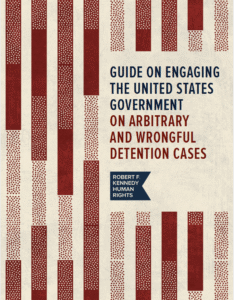With national elections in Myanmar less than three weeks away, human rights activists are raising serious concerns about the impact that restrictions on civic space and the disenfranchisement of thousands of Rohingya will have on the fairness and legitimacy of the elections. Protections of the rights to freedom of expression, assembly, and association are critical to holding free and fair elections, yet the Government of Myanmar has consistently threatened and denied these rights in the lead-up to the elections. While the outcome of this election is expected to be deeply flawed for several reasons, the Government must take immediate action to stop the repression of those expressing opposition to the ruling party, lift internet restrictions in Rakhine and Chin States, and end its ongoing persecution of the Rohingya minority.
Silencing Critics, Protesters, and the Media
Over the past few months, authorities across the country have engaged in numerous efforts to crackdown on protesters and silence opposition groups and political parties. Myanmar officials have arbitrarily detained and pressed criminal charges against 15 human rights defenders who peacefully protested the Government, the conflict in Rakhine and Chin States, and internet restrictions in the region. The protests consisted of posting anti-war leaflets and signs across several regions. At least two members of the All Burma Federation of Student Unions were sentenced to five years in prison, with additional charges pending. Another person was sentenced to one year in prison, and a fourth person sentenced to one month with hard labor. Police involved in arresting the students reportedly conducted several nighttime raids on their homes; in one case, police claimed to be conducting neighborhood wellness and temperature checks for COVID-19 to gain access to the home.
Last month, the Government’s stay-at-home orders in response to the coronavirus pandemic failed to make exceptions for members of the news media, including journalists and drivers of newspaper delivery trucks. The restrictions have limited the ability of journalists to report on the upcoming election, and reduced the availability of independent news sources. For example, despite the stay-at-home orders, state-owned newspapers have been able to continue their print editions, while other news outlets have been forced to stop producing them.
In addition, the Government has used state-owned media to restrict campaigning by opposition parties. The Union Election Commission refused to approve opposition campaign speeches for broadcast on state-owned television and radio channels, because they mentioned land rights issues, referred to the ruling party’s majority in parliament as a “one-party system,” and called for creating jobs and the need for sufficient income.
Internet Shutdowns Restrict Civic Space
For more than a year, government-imposed shutdowns have effectively blocked one million people in Rakhine and Chin States from accessing mobile internet, placing serious restrictions on their right to freedom of expression and access to information. At the current 2G internet speed restrictions in eight townships, it is impossible to send or access emails or visit webpages with photos or videos.
With the upcoming election, these targeted internet restrictions seriously impact the ability of activists and voters to share and access information about the voting process and candidates. As mentioned above, advocates and students who have peacefully protested the internet restrictions, such as activist and poet Maung Saungkha, have faced criminal charges under several laws, including the Peaceful Assembly and Peaceful Procession Law, which criminalizes acts like failing to give notice of an assembly.
Persecution Against the Rohingya
According to UN Special Rapporteur on the situation of human rights in Myanmar Tom Andrews, the ongoing repression of the Rohingya minority in Myanmar and denial of their citizenship jeopardize the openness and fairness of the upcoming elections. Most Rohingya living in Myanmar have been barred from voting, as well as all Rohingyas living as refugees in Bangladesh or elsewhere. In August, several candidates from the Rohingya-led Democracy and Human Rights Party (DHRP) were barred from running for seats in the national parliament.
For decades, the Government has denied full citizenship rights to Rohingya. Election laws requiring that a candidate’s parents be citizens of Myanmar at the time of their birth have been used to disqualify at least six Rohingya candidates from running for office in November. Since 2015, the Government has refused to recognize provisional citizenship documents, effectively preventing the Rohingya people from voting.
The severe disenfranchisement of the Rohingya is part of a long history of persecution and violence. In 2017, the Myanmar military committed genocide against the Rohingya in Rakhine State, killing and raping thousands of people, burning their villages, and forcing more than 700,000 people to flee to neighboring Bangladesh. Today, hundreds of thousands who remain in Myanmar are forced to live “in concentration camps and urban ghettos like those in Nazi-occupied Europe,” according to a UN investigator. Severe limitations are also placed on their freedom of movement, and their ability to marry and have children. As Robert F. Kennedy Human Rights’ Kerry Kennedy and Angelita Baeyens recently wrote in Just Security, ending the ongoing persecution of the Rohingya is part of the accountability needed for the genocide.
Calling on the Myanmar Government to Act
The ongoing repression of Rohingyas and attacks on civic space undermine the legitimacy of Myanmar’s upcoming election and the protections of fundamental human rights. The Government of Myanmar must take immediate steps to protect the rights to freedom of expression, peaceful assembly, and association for all people in the country. These include:
- Amend restrictive laws that criminalize peaceful protests, and drop criminal charges and set aside convictions for students and activists expressing their views on the Government
- Recognize media workers as “essential” and exempt from stay-at-home orders to allow them to report on the election and other matters
- End government censorship of campaign speeches and materials
- Lift internet restrictions in Rakhine and Chin States that prevent people from accessing information and participating in freely exchanging ideas
- Reform laws that deny Rohingyas full citizenship and that prevent them from voting and standing for election, and lift all other restrictions affecting their freedom of movement and other fundamental human rights.
Addressing these much-needed reforms will be a first step for the Government to ensure the protection of fundamental human rights, and the freedom and fairness of Myanmar’s elections in the future.




